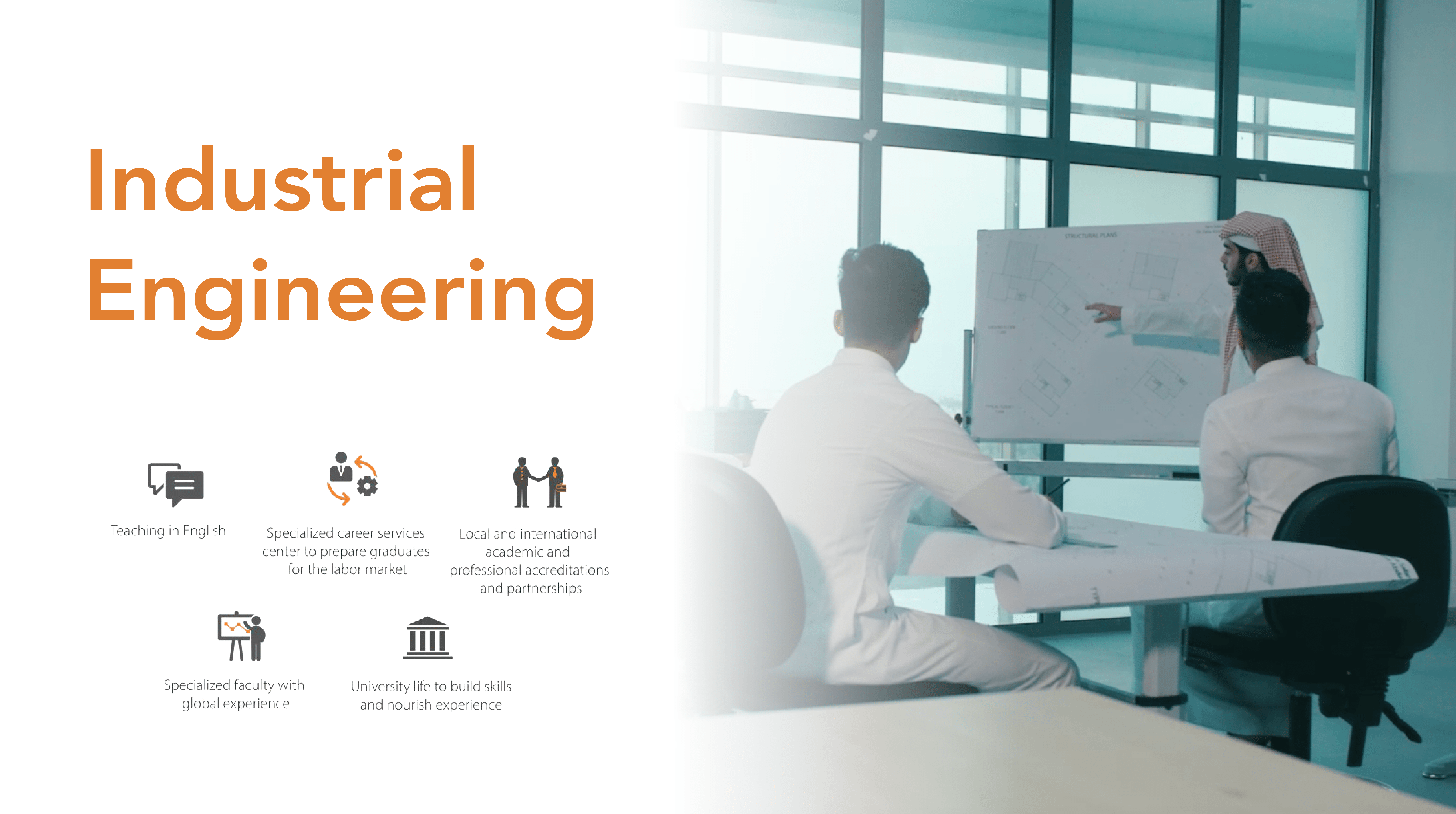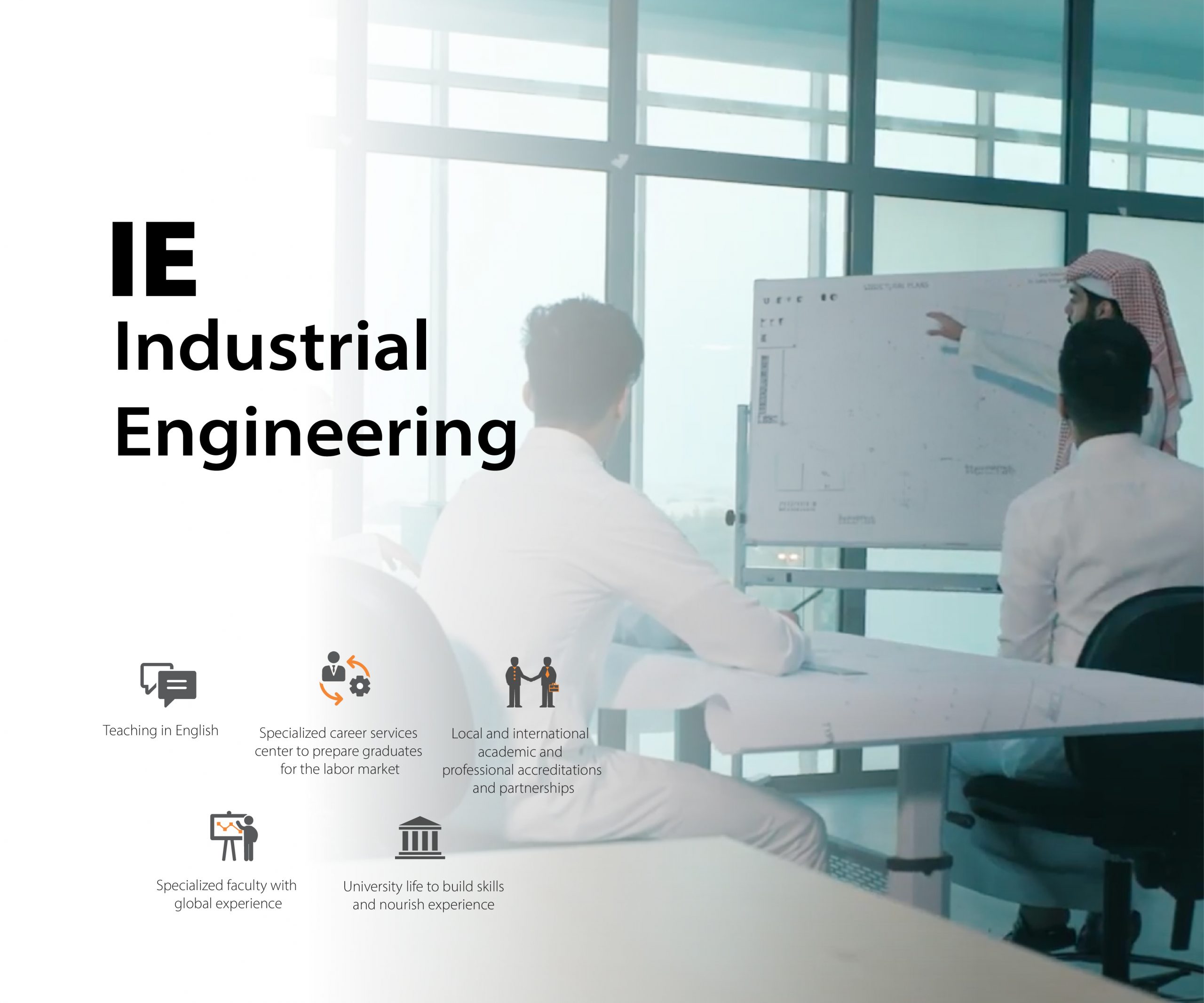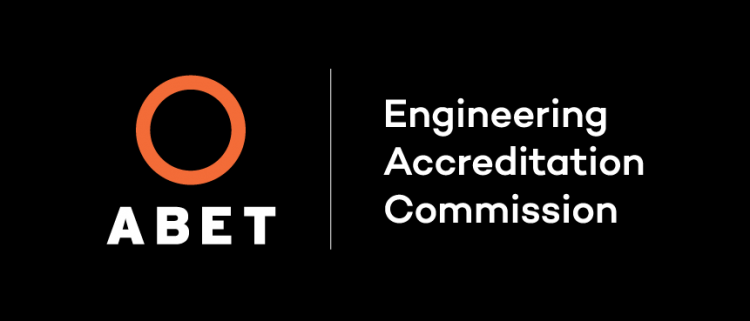


Program Information
“The Industrial Engineering (IE) program focuses on optimizing systems and processes for enhanced efficiency, productivity, and quality across industries. Students develop a blend of engineering, business, and management skills to analyze and design integrated systems. With its interdisciplinary approach, the program offers a competitive edge by merging technical expertise with problem-solving and project management abilities. Graduates acquire proficiency in operations research, production planning, supply chain management, and process enhancement. This specialization equips students with sought-after skills to drive operational excellence, cost reductions, and organizational competitiveness, making IE graduates valuable assets in sectors like manufacturing, healthcare, logistics, consulting, and technology that prioritize process optimization and efficiency for success.”
ABET Accreditiation
The Industrial Engineering program is accredited by the Computing Accreditation Commission of ABET, under the commission’s General Criteria and Program Criteria for Industrial and Similarly Named Engineering Programs.
Major Required Courses
Study Plan
Course Description
Admission Requirements
Al Yamamah University 2023 ©
